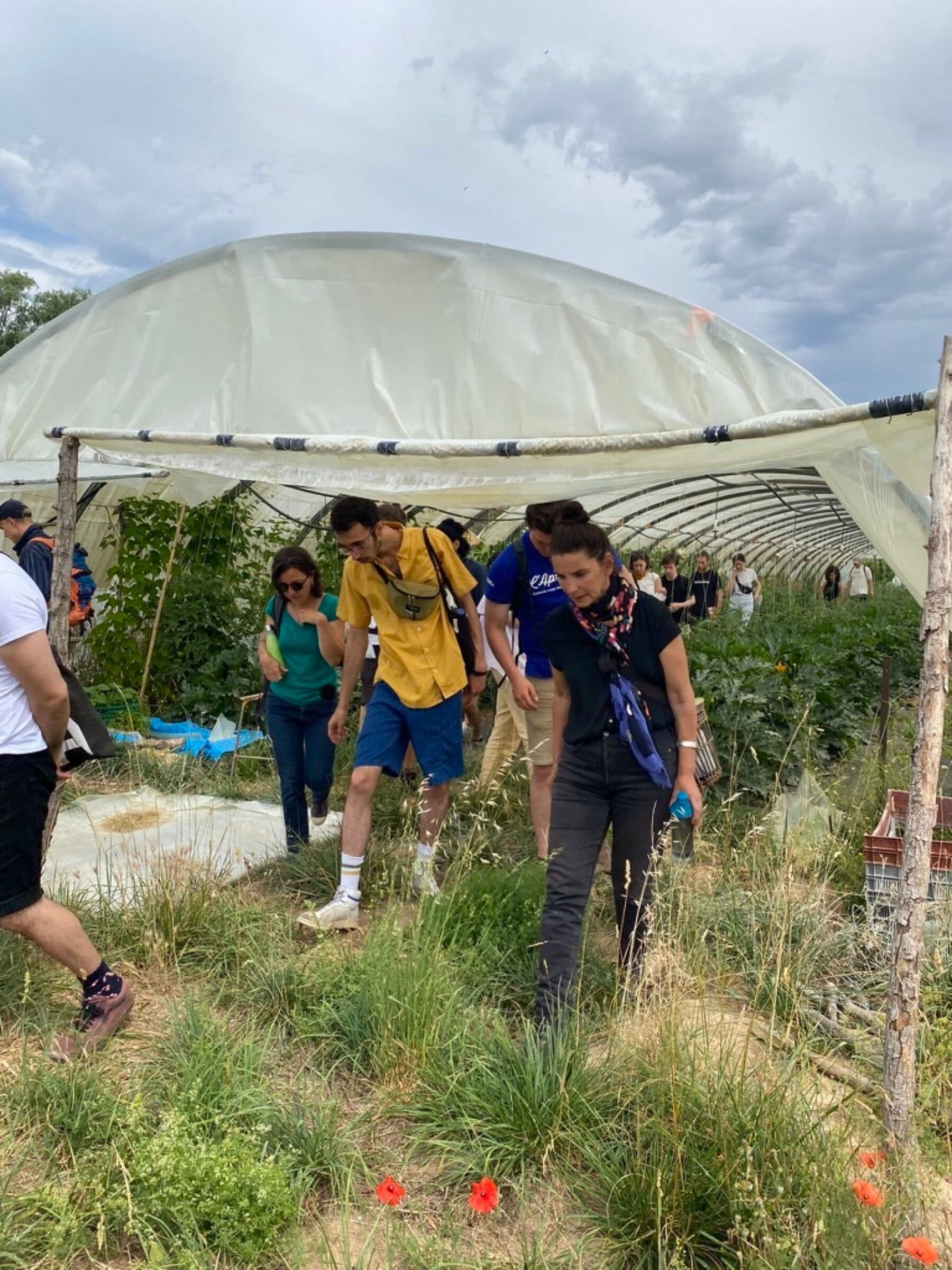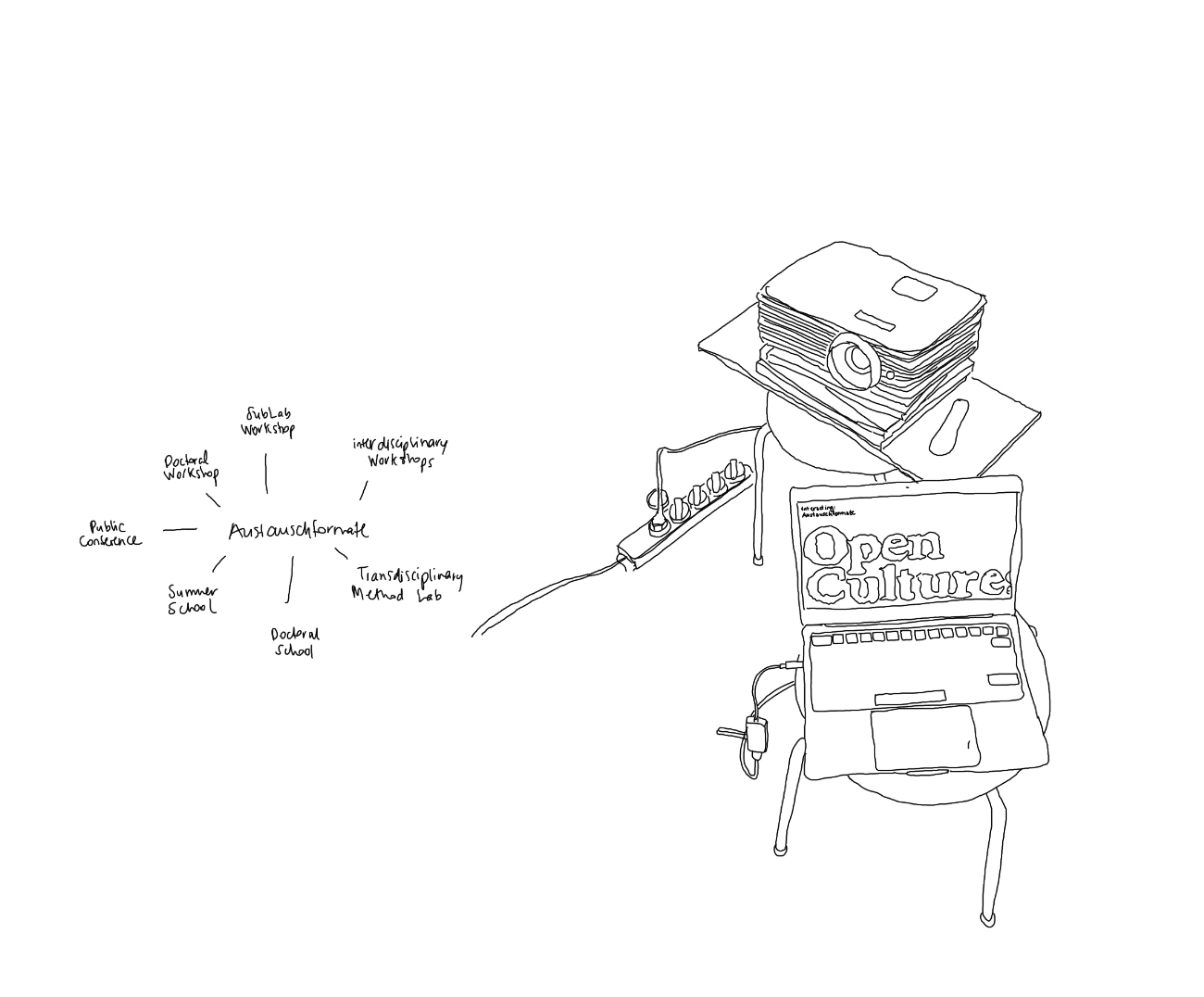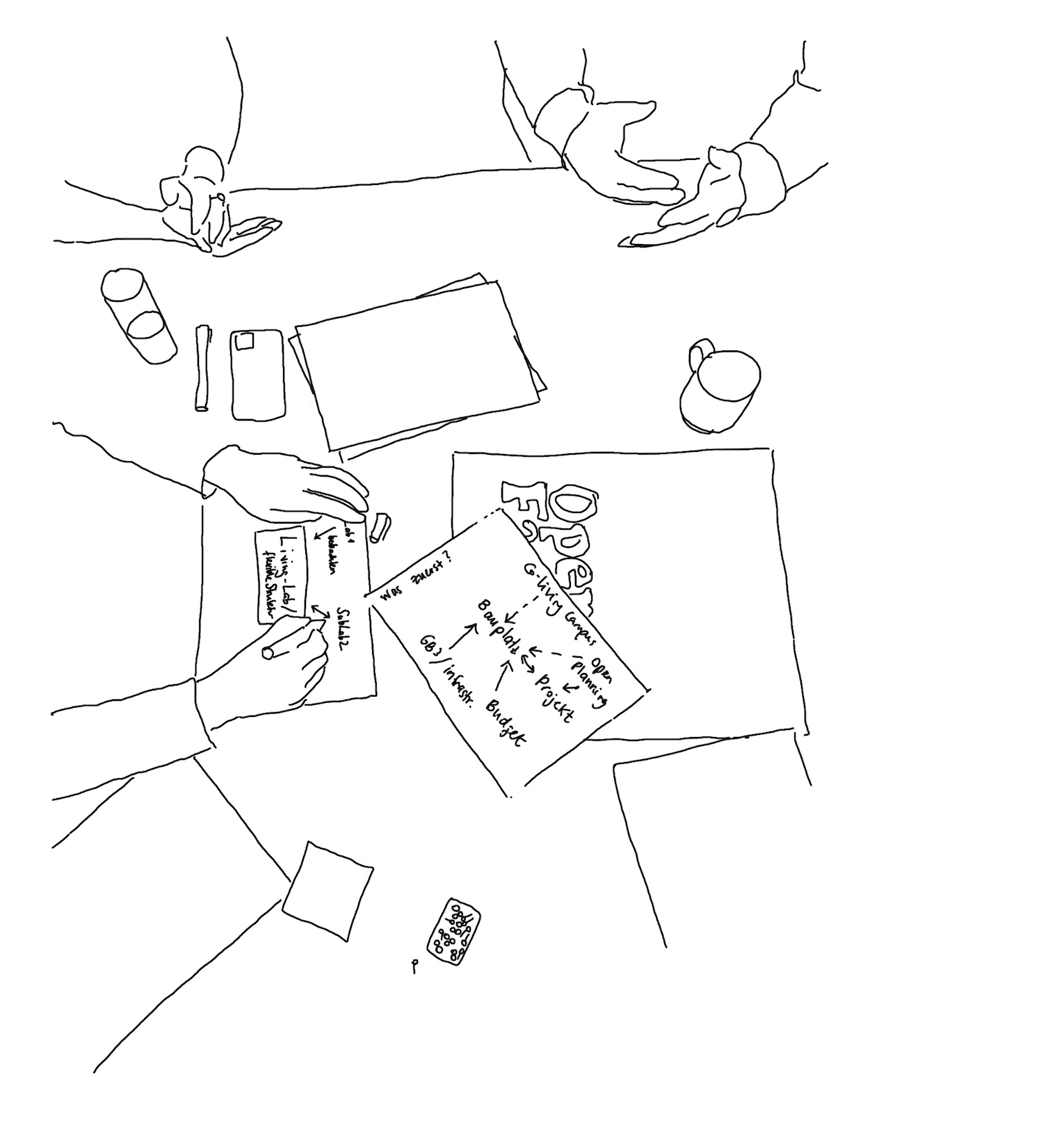How can climate knowledge be translated into sustainable living through design principles which directly support climate adaptation in urban development and spatial planning?
Open Planning Cultures Design Principles for Transformative Spaces
OpenCultures is an inter- and transdisciplinary research project that develops design principles which directly support climate adaptation in urban development and spatial planning. It sets out to disentangle the complex relationship between climate knowledge and the praxis of urban design and sustainable living. By bridging expert/non-expert divides, it creates new ecologies of knowledge by the fusion of disciplinary and scientific knowledge with other forms of knowledge. A Climate Future Lab funded by the Lower Saxony Ministry of Science and Culture and the Volkswagen Foundation, it includes over 20 researchers from TU Braunschweig, the Julius Kühn Institute Braunschweig, and the Scientific Centre ‘Genealogy of the Present’ at Carl von Ossietzky University Oldenburg. Organised in three SubLabs, and in close collaboration with praxis partners and civil society groups, they explore the social, material, and symbolic dimensions vital for a climate-sensitive approach to urban design.
- Technische Universität Braunschweig
- Institute for History and Theory of Architecture and the City ↗
- Institute for Building Climatology and Energy of Architecture ↗
- Institute of Building Construction and Timber Structures ↗
- Institute for Construction ↗
- Institute for English and American Studies ↗
- Institute for Building Climatology and Energy of Architecture, Gender.Ing ↗
- Institute of Information Systems, Chair of Service Information Systems ↗
- Julius Kühn Institute ↗
- Federal Research Centre for Cultivated Plants
- Institute for Plant Protection in Horticulture and Urban Green ↗
- Carl von Ossietzky Universität Oldenburg
- Research Centre "Genealogy of the Present" ↗




In its convergence of different scientific fields — humanities, social sciences, natural sciences and others — OpenCultures is following inter- and transdisciplinary principles, and embraces an intersectional, diverse, multiperspective, open, and inclusive approach. Coordinated by the project speaker and her team, the three SubLabs include, apart from Senior Academics, a Postdoctoral Researcher and Doctoral Researchers, cooperating with praxis partners, civil actors and students. OpenCultures is monitored and informed by an Advisory Board, reflecting the critical, and dialogical setting of project.
Aileen Wiechmann is a Master of Education student at Oldenburg University, studying English and Philosophy. She joined the OpenCultures research project as a student assistant in October 2025 and supports the project by completing various smaller assignments, like coordinating activities or doing research. In the context of this project, she's writing her Master's thesis, covering topics like climate justice, climate change in narratives or the relation of climate action potentials and climate narratives.
Arsène Rutikanga arbeitet als technischer Assistent im SubLab OpenPlanning. Vorher war er als technischer Assistent beim Projekt CliMax am Julius Kühn-Institut tätig. Er ist Naturwissenschaftler und hat in Ruanda seinen Bachelor in Biotechnologie abgeschlossen. Seit 2016 ist er in Deutschland, wo er eine zweijährige Ausbildung zum biologisch-technischem Assistenten gemacht hat.
Benjamin Kempe ist gelernter Kaufmann für Bürokommunikation. Als Teamassistent am Institut für Geschichte und Theorie der Architektur und Stadt (GTAS) unterstützt er an der TU Braunschweig auch OpenCultures in Administration und Organisation. Von August 2025 bis voraussichtlich Juli 2026 ist Benjamin Kempe nicht am Institut erreichbar, in dieser Zeit vertritt ihn Zsófia Pálffy.
Birgit Klötzer is an urban researcher at the Institute of Building Climatology and Energy of Architecture, Gender.Ing at TU Braunschweig. She has been a student of Urban Planning at the University of Kassel until 2024, where she set her focus on planning communication, participation and Urban Commons theory as well as feminist spatial practice and an intersectional view on space. Through her previous studies as a stage and costume designer at the Hannover University of Applied Sciences and Arts, and 10 years of work experience as a designer for theatres in Germany and Austria, she also looks at participation in urban development from a performative perspective.
Daniel Dieren is a faculty member and researcher at the Chair of Building and Timber Construction at Technische Universität Braunschweig. He holds master's degrees in both civil engineering and architecture. His current research focuses on timber-hybrid structures, the forest-timber supply chain, and sustainable, resource-efficient construction practices. In his doctoral studies, he explores simple, cost-effective building solutions for multi-residential housing using timber and prefabricated building elements. Prior to joining TU Braunschweig, Daniel spent ten years designing and planning building structures as a structural engineer and consultant, and he taught at the University of the Arts in Berlin.
Doreen Koltermann is a natural scientist and researcher at the Julius Kühn Institute. Her work focuses on climate protection and adaptation with topics on agricultural development in rewetted peatlands and cultivation of renewable plant materials for bioenergy and peat substrate replacement. Her current research focusses on urban greenery, green infrastructure and food production. She received her doctoral degree at TU Braunschweig and holds a master degree in process and quality management in horticulture. The tasks in Open Cultures is the scientific supervision and development of citizen science experiments in community gardens and in the establishment of mobile climate gardens.
Eckart Voigts is Professor of English Literature and Culture at TU Braunschweig and part of the OpenImaginaries SubLab. His work spans adaptation, transmedia storytelling, urban literature, and posthumanism. He co-edited volumes such as the Routledge Companion to Adaptation (Choice Award 2020), Companion to British-Jewish Theatre (2021), and Artificial Intelligence – Intelligent Art? (2024). He also contributed to Twenty-First Century Anxieties (2022) and Transforming Cities (2018). He received the TUmorrow Teaching Award for a course on environmental humanities (with B. Wahrig) and co-leads the “Future City” research area at TU Braunschweig.
Elisabeth Endres is Professor for Building Technology, she heads the Institute for Building Climatology and Energy in Architecture at the TU Braunschweig and is a member of the board of the Munich-based engineering firm Hausladen. In practice, teaching and research, she addresses the intersection between architecture and technical systems. She focuses on the interaction between passive and active components with the aim of developing robust solutions in the construction industry. As a member of the BDA, the scientific advisory board of the DGNB and as a board member of the Sep Ruf Gesellschaft e.V., she is contributing to current discussions and targets in the construction industry.
Emma ist seit Oktober 2022 als studentische Hilfskraft am Institut für Bauklimatik und Energie der Architektur (IBEA) tätig. Nach einem zwischenzeitlichen Praktikum in Hannover kehrte sie an die Technische Universität Braunschweig zurück, um ihr Masterstudium in Architektur aufzunehmen, und unterstützt seit Juli 2025 das Forschungsprojekt OpenCultures.
Friederike Alt is currently studying Architecture at TU Braunschweig and working as a Student Assistant for OpenCultures since the project started in October 2024. Her current tasks include research and various smaller assignments that help with the smooth coordination of project activities. Through this work, she gains insights into the connection between culture, digital innovation, and ecological responsibility — topics that also shape her academic interests in architecture and sustainable design.
Hanna Noller studied architecture at HafenCity University Hamburg, Mimar Sinan University in Istanbul, and the State Academy of Fine Arts Stuttgart (MA). She also holds a degree in business administration (DH) and is a trained carpenter. Since 2016, she has worked across research, teaching, and architectural practice at the intersection of urban studies, civic engagement, and spatial production. Her work mediates between theory and practice, people and places, spatial visions and infrastructures. Currently, she is a scientific researcher and doctoral candidate at the Institute for the History and Theory of Architecture and the City ↗(GTAS) at the Technical University of Braunschweig and a doctoral fellow of the Wüstenrot Foundation ↗. Alongside her academic work, she works through Space Between People ↗, where architecture unfolds as a method for inquiry, collaboration, and cooperative urban transformation. She is a co-founder of the non-profit organization Stadtlücken e.V. ↗
Helga Blocksdorf is a Berlin-based architect with her own practice Helga Blocksdorf/Architektur since 2013. Since 2021, she is professor and head of the Institute for Construction (IKON) at TU Braunschweig. Her research focuses on the ecological transformation of building, including digital timber fabrication, mixed masonry, and birch bark. She develops methods of constructive experimentation and formats like in the project OpenCultures. Previously, she taught in Weimar, worked with Prof. Ute Frank at TU Berlin, and joined the Programme for Design-Based Doctorates in 2019. From 2001–2013, she was part of the international artist collective après-nous.
Henriette Bertram is Professor for Gendered Perspectives on Technology and the Built Environment at TU Braunschweig. She is interested in the interdependencies of society and its inequalities on the one hand and spatial structures, technical artefacts as well as engineering, design and planning processes on the other. Henriette has a PhD in Urban Planning from the University of Kassel and a degree in Cultural Sciences from European University Viadrina.
Jula has been part of the GTAS team since March 2025, and supports the OpenCultures research project as a student assistant. After completing her internships in architecture offices in Groningen and Hamburg, she came back to Braunschweig for her Master's degree last semester and is looking forward to the interdisciplinary work at GTAS and OpenCultures alongside her studies.
Kristin Lazarova studied Architecture and Urban Planning in Stuttgart and Urbanism and Societal Change in Copenhagen. Kristin collectively designs, researches and teaches about urban spaces. As a project lead in the SubLab Open Planning Kristin works in the field of urban design and urban green.In the past, Kristin has worked for and with planning offices in Stuttgart, Zurich and Berlin. Since 2021 Kristin has been building up Urbane Praxis ↗. Until 2024 Kristin headed the Network Office Urbane Praxis - an intermediary for civic initiatives, administration and politics. Kristin is part of Urbane Liga ↗ and Tramdepot ↗ and co-designs the Learnscapes program at Floating University.
Since March 2025, Lisa Cristea has been a research assistant and Doctoral candidate at the Institute of English and American Studies at the TU Braunschweig. She received a B.A. and M.A. at the Friedrich-Alexander-University Erlangen-Nürnberg, where she also worked as a student assistant in the Department of English Literary Studies. In her research, she focuses primarily on the Environmental Humanities. Within this field, she is especially interested in the question of how discourses about the environment are narrated in different media and how innovative aesthetic forms in literature and film can contribute to a deconstruction and rethinking of anthropocentric perspectives on the non-human environment.
Martin Butler is Professor of American Literary and Cultural Studies and director of the Research Centre “Genealogy of the Present” (WiZeGG) at the Carl von Ossietzky University Oldenburg, Germany. He is also co-speaker of the interdisciplinary PhD program “Shaping the Future: Transformation of the Present through Scenarios of Digitalization”, as well as co-speaker of OpenCultures. His research focuses on popular cultural practices and their potentials in the production of knowledge as well as in processes of subjectivation. In this field, he is specifically interested in popular music of protest and resistance, in audiovisual media and their representation of science, in forms and figures of popular cultural mobility, and in cultures of participation in new media environments.
Mike Sieder is a civil engineer specialising in timber construction, works in practice, as an expert and, as head of the Institute for Building Construction and Timber Construction at the TU Braunschweig, conducts research with his team in different areas of timber construction and building construction. Topics such as building preservation and construction in existing buildings with a current focus on recycling, re-use and sustainability are part of the expertise and are contributed to the OpenCultures project. In addition, there is current research in the areas of timber panel construction, fatigue behaviour of timber structures and the spatial load-bearing behaviour of buildings/ components.
Dr. Mona Quambusch is a biologist specialized in plant physiology and plant protection. She works at the Institute for Plant Protection in Horticulture and Urban Green on a wide range of urban green issues, in particular plant protection and climate adaptation, city tree stress detection, green infrastructure and food production in the city. She advises and supports the implementation of the Federal Government's White Paper on Urban Greenery, prepares reports and publications on current topics and issues in urban greenery and has experience in the coordination and implementation of cooperative research projects.
Nikolaus Buschmann is a historian and sociologist. His research focuses on the cultural history of modernity, sociological theories of practice, and subjectivisation studies. He is currently working on the genealogy of ecological awareness in modern society and, as part of the joint project, on the role of urban planning in sustainability discourses.
Noor Khader is a visionary architect, researcher, and educator whose work lies at the intersection of planetary thinking, regenerative design, digital fabrication, and pedagogies of care. Her practice reimagines architectural education as a space for creative autonomy, critical inquiry, and relational awareness that embraces the interconnectedness of all life. She leads design studios as spaces of research creation and interdisciplinary collaboration. She is currently an academic researcher at the Climate Future Lab OpenCultures, within the SubLab OpenImaginaries. Alongside her academic work, Noor guides individuals and groups through contemplative sessions that nurture creative alignment and vocational initiative.
Pascal Abel is a design researcher at the Chair of Service Information Systems (wi*sis) at TU Braunschweig. His work focuses on bottom-up participation, combining practical implications with design tools and open-source platforms grounded in scientific research. Engaging with diverse impact fields such as do-it-yourself, energy, and democracy, he explores innovative ways to foster participation and collaboration in the digital domain and within organizations. Through interdisciplinary approaches, he aims to bridge theory and practice, contributing to research and real-world applications in service ecosystems and a participatory society.
Samuel Barckhausen is a practicing architect, researcher and environmental designer. He explores new ways of living together by questioning architectural expression and construction in the age of the Anthropocene, both as a designer in his own studio founded in 2024, and as a researcher at TU Braunschweig. In his current research at IKON Institute, he is investigating the use of birch bark, bringing it back into the material canon of sustainable building production as a substitute for plastic. OpenCultures is ideally suited to bringing the Institute's series of prototype studies into a further in-depth investigation and promoting participative processes.
Saskia Bothe is a scientific librarian as well as a landscape ecologist and urban gardening activist. She enjoys sharing her knowledge and enthusiasm about urban greenery - especially its edible parts -, be it in courses on gardening for allotmenteers or community gardeners, in foraging tours, or through Environmental education for school children and others. In OpenFactory, she acts as an intermediary between the citizen scientists in community gardens and the researchers of Julius Kühn Institute and TU Braunschweig, and is eager to increase the implementation of sustainable gardening techniques wherever possible.
Sophie Krone is a research associate at the Research Centre “Genealogy of the Present” (WiZeGG) at the Carl von Ossietzky University Oldenburg. Previously, she worked on the project "Geographic Imaginations II: Ontological (In)Securities in Rural Areas" of the Collaborative Research Centre 1265 "Re-Figuration of Spaces" at the Humboldt University of Berlin. She studied sociology and urban and regional development at the University of Bremen and the Rijksuniversiteit Groningen (NL). Her research focuses on spatial theory, atmospheres, built environment, and architecture, as well as qualitative methods – especially visual methods, mappings, and ethnography. She is interested in the interplay of social and material layers in cities and researches urban phenomena with an interdisciplinary perspective.
Prof. Dr. Susanne Robra-Bissantz heads the Institute of Information Systems at the Technische Universität Braunschweig, where she holds the Chair of Service Informatics (wi*sis). Together with her team, she researches the design of person-centred digital services and platforms according to the principles of design science research. Of particular relevance is the design of mechanisms to promote cooperation and collaboration between interacting actors, in service ecosystems, in companies or in (bottom-up) participation. The Institute presents its research findings in specialist journals, at national and international conferences and puts them into practice in projects.
Tatjana Schneider is a trained architect, researcher and educator; she is also the speaker of OpenCultures. Her work focuses on critical spatial practices and resistance to exploitative and violent productions of space. She has taught at the Universities of Strathclyde, Sheffield and Braunschweig, where she currently directs the Institute for History and Theory of Architecture and the City (GTAS). Her publications as author and editor include Spatial Agency. Other Ways of Doing Architecture and Making Futures. Current work focuses on the role of architecture in climate breakdown, including Architecture is Climate. In 2021, she ran for mayor of Braunschweig.
Till Zihlmann studied architecture at the Berlin University of the Arts, the Royal Academy in Copenhagen and the TU Berlin. Between and during his studies, he worked as an architect at Staab Architekten in Berlin and at Clauss Kahl Merz in Basel. Since 2022, he is a Scientific Staff Member at the Institute for Building Climatology and Energy of Architecture. As part of OpenCultures, he coordinates the SubLab OpenFactory, and is working towards a doctorate. He is interested in the interface between engineering, cultural studies and design. In particular, the implications of a new geological reality - the Anthropocene - for the discipline of building climatology.
Uta Leconte is a cultural scientist in architecture and the built environment. Her work focuses on socio-spatial agencies in the just and sustainable transformation, as well as inter- and transdisciplinary research methods. Her research fields further include architecture in the context of neoliberal globalisation, and intersectional diversity, equity & inclusion (DEI) in architectural pedagogy and practice. At the Institute for Theory and History of Architecture and the City at the Technical University Braunschweig, she co-coordinates the Climate FutureLab Open Planning Cultures. She completed her dissertation ‘World Trade Centerness. Repercussions of the Twin Towers' at TU Munich, and holds a Master's degree in Literature, Theatre and Comparative Studies from Ludwig-Maximilians-Universität Munich.
Yue Sun is a postdoctoral researcher at the Institute for History and Theory of Architecture and the City (GTAS). She has an academic background in urban-rural planning in China. Her current research and teaching focus on human-plant interactions in urban contexts, particularly on foraging practices that foster a future of sharing, caring, and respect. Within OpenCultures, she is working on an ongoing project, Mobile Kitchen (MOCHI), which aims to share embodied plant knowledge, promote a better understanding of appropriate foraging practices, explore methods for mapping and consolidating intergenerational knowledge transmission through a series of events, including foraging walks, cooking and handcrafting workshops, and collaborations with local praxis partners, such as Gartennetzwerk Braunschweig, Ernährungsrat Braunschweig & Braunschweiger Land e.V.
OpenCultures establishes the LivingLab as a framework to translate climate knowledge into the planning, design, and everyday use of urban environments. It functions as a platform for inter- and transdisciplinary research as well as participatory practice. The LivingLab brings together academic and non-academic actors, fostering collaboration between scientific disciplines and civil society to explore viable pathways for climate adaptation and sustainable transformation. It includes several physical sites – the Factory, the Mobile Kitchen, and the Garden Network – that offer spaces for collaborative research and hands-on exploration.
OpenCultures is conceived as a series of settings that allow for the intersection of disciplinary and scientific knowledge with other forms of knowledge. Accordingly, the SubLabs are designed to interrelate through transversal connectivity structures that sustain mutual exchange as well as methodological cross-fertilisation. These connectivity structures ensure interdisciplinary collaboration; lateral and transversal knowledge flows across the SubLabs and takes shape in Interdisciplinary Workshops, a Transdisciplinary MethodLab, a Doctoral School, Summer Schools, and Public Conferences.
OpenCultures aims to create new ecologies of knowledge by the fusion of disciplinary and scientific knowledge with other forms of knowledge. Knowledge that is open, accessible, and transferable in research and praxis, as well as across disciplines. In order to make this knowledge available to everyone, OpenCultures is mediating its work in written and spoken word, design, film, or other forms with the objective to not only disseminate knowledge, but to engage in discourse, dialogue and debate, both within the project and to the outside.
